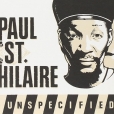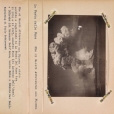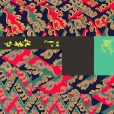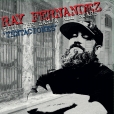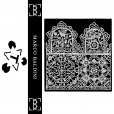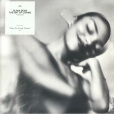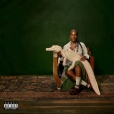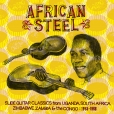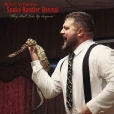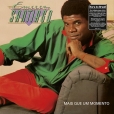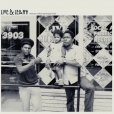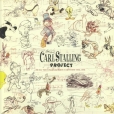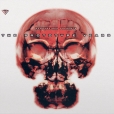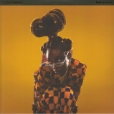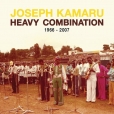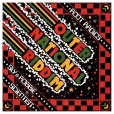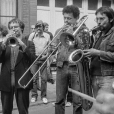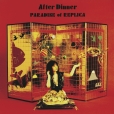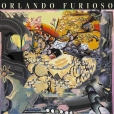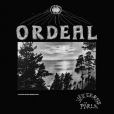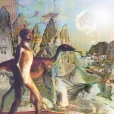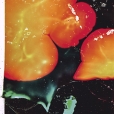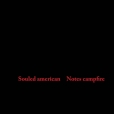Your basket is empty

‘The opener is a statement of intent — frazzled, shuffling drums, ketamine oud, heavy sub bass — something like Wordsound’s Scarab zooming out of the 90s into the future. Tombaroli is a head nodder, with insistent percussion and banging pulse. A lysergic fever-dream, Bullet Holes dips into spooked psychedelia; No Minus sounds like a distant cousin of DJ Premier’s production Come Clean, for Jeru.
‘Channel 83 lands us back in the club for a rib-rattling stomp, weaving mystical soundsystem magic with its stunted horns and swirling voices. The grimy judder of Expect Excerpt slides proceedings down to a bleary-eyed half-speed, like a party which won’t let you leave. Mount Point is a welcome release, an early morning sunrise — rich, slow, and shimmering — before Landings Dub signals the end of the journey with a metallic elegy; both a summing up of the record, and the contemplation of your flipping it, and re-entering the world of Detraex Corp.’
‘We first became aware of the Florence-based composer Marco Baldini via the incredible Another Timbre label.
‘His albums, Vesperi and Maniera, blew us away. Maniera, Marco’s second album for the label consists of seven chamber works for strings, beautifully played by Apartment House. If you haven’t heard it go straight to Another Timbre’s Bandcamp and check it out! Vesperi, Marco’s first release on Another Timbre, from around a year before is also absolutely unmissable, it’s comprised of three pieces derived from works by 16th century Italian composers alongside original compositions.
‘Both albums have provided much needed calm in turbulent times. Marco kindly accepted our invitation to compile a mixtape, and here it is! Thank you so much, Marco!’
Electrifying extracts from a Sunday service in the last snake-handling church in the Appalachians: the trance-like rhythms of a demented kind of rockabilly punk, with duelling guitars, concussive trap drums, and possessed, howling vocals.
“I’d sworn to stay far away from the snakes at the service,” recalls the recording engineer, “but instead they were waved in my face as they coiled in the preachers’ hands, and I crouched down at the foot of the altar tending to the equipment. The pastor soon was bitten and blood splattered, pooling on the floor. The female parishioners hurriedly came to wipe up the mess, and it instantly became clear just what the rolls of paper towels stacked on the pulpit had been for. You can actually hear this moment transpire towards the end of the track ‘Don’t Worry It’s Just a Snakebite (What Has Happened to This Generation?)’. The congregation leapt to its feet and a mini mosh-pit formed. The tag-team preachers huffed handkerchiefs soaked in strychnine, as they circled like aggro frontmen and an elderly worshipper held the flame of a candle to her throat, closing her eyes and swaying. The church PA blew out from the screams as a bonnet-wearing senior whacked away at a trap kit that dwarfed her. It was the most metal thing I’d ever seen, rendering Slayer mere kids play.”
Classic Brazilian boogie, from 1983; including a killer version of Tania Maria’s Come With Me — Vem Menina — and the dancefloor smash O Amigo De Nova York.
Dazzling, revolutionary genius.
‘Stalling was a visionary whose work deserves consideration among the finest American avant-garde music ever recorded. As these selections from WB cartoons dating between 1936 and 1958 attest, his cut and paste style — a singular collision between jazz, classical, pop, and virtually everything else in between — was unprecedented in its utter disregard for notions of time, rhythm, and compositional development; Stalling didn’t just break the rules, he made them irrelevant. That in the process he created music beloved by succeeding generations of children is more impressive still’ (AllMusic).
